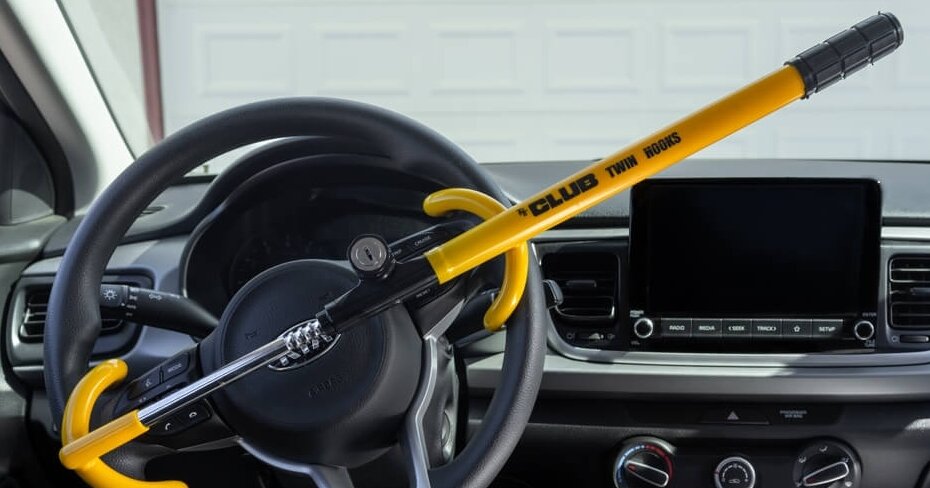Ontario vehicle theft survey: 38% of Ontarians personally know a theft victim
By: Arshi Hossain on November 6, 2024
Ontario’s auto theft crisis has dominated headlines and social media feeds, particularly in provinces like Ontario, during 2022 and 2023, where auto theft reached alarming levels.
This issue has started to hit home for most people. Over one third of Ontarians, 38%, know someone who has experienced vehicle theft in the past five years, up four percentage points from 2023, according to a recent survey by LowestRates.ca*. And if it hasn't happened to you, it likely has to someone you know.
And if it hasn’t happened to you, or somehow, anyone in your social circle, you’ve probably felt it through increasing auto insurance premiums. While the first half of 2024 has seen a 19% decline in auto theft claims, the cost of overall claims is still astronomically high when compared to historical levels of theft.
Despite this, 27% of respondents say they have yet to take any precautions to protect their vehicles from theft, down nine percentage points from last year, according to the LowestRates.ca survey.
KEY FINDINGS
- Over a third of Ontarians, 38%, know someone affected by vehicle theft, highlighting the personal impact of the crisis.
- Auto theft claims fell by 19% in early 2024, yet the cost of claims remains high, affecting insurance premiums.
- 16% of drivers now park in more secure locations, while 6% use anti-theft technologies like GPS tracking.
- 70% of Ontarians report no insurance surcharges, but many face increased premiums due to theft risks.
- Awareness of owning high-theft vehicle models increased, with 33% of respondents acknowledging their vehicle’s risk.
As the auto theft crisis continues, 16% of Ontarians choose to park in more secure locations
According to data from the Toronto Police Service, more than 12,000 vehicles were stolen in 2023, with almost 5,000 of those vehicles stolen from residential properties. Clearly, auto theft hits close to home for many drivers in the GTA — In Toronto alone, over 30,000 vehicle thefts were reported.
While just 2% of survey respondents say they personally have experienced the distress of vehicle theft, almost 40% say they know someone who has. In response,16% say they are choosing to park in more secure locations.
In addition to changing where they park, drivers say they are increasingly turning to more advanced measures to safeguard their vehicles, with the adoption of anti-theft technologies a noticeable trend.
The number of survey respondents that say they use anti-theft technology such as GPS tracking has risen slightly to 6%, up one percentage point from 2023. Meanwhile, 5% of vehicle owners say they have installed security cameras to monitor their vehicles.
Additionally, 3% of drivers have opted to install wheel locks.
What vehicles are the most stolen in Ontario?
Generally, cars that are most desirable to consumers are also most desirable to thieves – In Ontario, that means high-end luxury cars and SUVs.
In the first half of 2024, Equite’s auto theft report reveals that SUVs remain the most frequently stolen vehicles, with 5,532 incidents reported in Ontario.
Here’s the most recent updated list of most commonly stolen vehicles in Ontario:
- 2020 Honda CR-V
- 2020 Lexus RX Series
- 2022 Dodge RAM 1500 Series
- 2021 Toyota Highlander
- 2020 Land Rover Range Rover
- 2020 Ford F150 Series
- 2021 Jeep Grand Cherokee
- 2021 Jeep Wrangler
- 2019 Honda Civic
- 2021 Acura RDX
The Honda CR-V and Honda Civic are one of the most common cars you’ll see on Ontario roads. Subsequently, these are in high demand and have strong resale values. Their market desirability makes them attractive and profitable for thieves to sell. In the survey, 31% of respondents were unsure if their car is a commonly stolen one (33% of survey respondents say they are aware they own a commonly stolen vehicle model). This shows an increase in awareness compared to 2023, when only 13% of the drivers surveyed said they knew they owned a high-theft vehicle.
Detective Inspector Scott Wade from the OPP Organized Crime Enforcement Bureau explains in an interview that most stolen vehicles are either exported, or re-vinned to finance and carry out other criminal activities, ranging from drug trafficking, arms dealing, people smuggling and international terrorism.
“These vehicles are stolen according to domestic and largely international demand... The cause behind Canada’s growing vehicle theft problem is multifaceted and primarily driven by organized crime," he notes.
Related: How to make sure the car you’re buying isn’t stolen
Insurers adding surcharges or raising premiums: Nearly 70% Ontarians taking safety precautions against theft
While in 2024, auto theft has shown a minor downward trend in the first half of the year compared to the previous year, we’re still experiencing a ten-year high in auto theft rates.
“We've observed a remarkable increase in the prevalence of theft over the last ten years. The current decline is relatively minor compared to historical levels, with only a slight dip in Ontario and Quebec,” says Liam McGuinty, vice-president of strategy at IBC).
Auto theft continues to pose a major threat to families all across the province.
In response to the surge in car thefts, the insurance industry has raised premiums and added surcharges to offset losses.
McGuinty explains that insurers are managing the higher risk linked to specific vehicles by offering incentives such as premium discounts if policyholders install aftermarket tracking devices or other theft-prevention technologies. Upon receiving recommendations from their insurers, 12% of those surveyed said they installed their own anti-theft devices.
Notably, 7% of respondents who initially received a surcharge say they had it removed after installing a required tracking device.
However, data from our recent survey reveals that 70% of Ontarians say they haven’t received a surcharge, slightly down from 78% in 2023. On the other hand, 27% of respondents say they haven’t taken any further precautions against vehicle theft.
Read more: How expensive is it to insure one of Canada's top 10 most stolen vehicles?
How do insurers price surcharges?
When it comes to vehicles that are considered at high-risk of theft, insurance companies face a challenge when determining surcharges.
“For models presenting higher risks, no permissible surcharge can accurately reflect that risk actuarially,” says McGuinty.
This means that even though insurers can apply surcharges to account for this increased risk, the regulations and actuarial calculations (which are used to assess risk and set premiums) may not allow for a surcharge that fully compensates for the actual risk.
Auto theft rates have also shifted geographical patterns. Hunting grounds for car thieves used to be primarily in Ontario and Quebec, but they’ve slowly moved away from these provinces.
While there’s a 14% reduction in theft rates in Ontario and a more substantial decrease of 36% in Quebec, there’s an increase in Alberta (1% year-over-year), New Brunswick (14% year-over-year), and Nova Scotia (27% year-over-year) according to McGuinty.
However, a decrease in auto thefts won’t immediately lead to a decrease in premiums. According to McGuinty, any downturn trend in auto theft needs to deepen significantly and be sustained over a longer period to enable insurers to reconsider surcharges and premium prices.
“We are still amid a theft crisis,” he says.
Comprehensive insurance covers car thefts
Comprehensive coverage, which covers vehicle theft and theft of specific parts, is not a mandatory part of auto insurance in Ontario and is offered as optional coverage.
Forgoing comprehensive coverage means forgoing protection if your vehicle is stolen.
According to the survey only 6% of respondents say they have added specific theft endorsements to their policies, while another 7% have increased the amount of their coverage.
Despite a decrease in auto theft rates in the first half of 2024, Canadians must remain on high alert.
"We cannot take our foot off the pedal,” says Detective Wade.
Every stakeholder, from government officials and law enforcement to insurers, plays a crucial role in reducing vehicle theft, aiding recovery, preventing illegal exports, and apprehending criminals.
For drivers, it means understanding the risks, making sure your vehicle is appropriately armed with a theft prevention device (like a steering wheel lock or a GPS tracker) and parking in secure locations.
*Survey conducted by LowestRates.ca, polling 816 Ontarians between October 5 and 6 that used LowestRates.ca’s auto insurance quoter.
Save 23% on average on car insurance
Compare 50+ quotes from Canadian providers in 3 minutes.

.jpg?itok=88nBkwga)
.jpg?itok=W5fSKczJ)